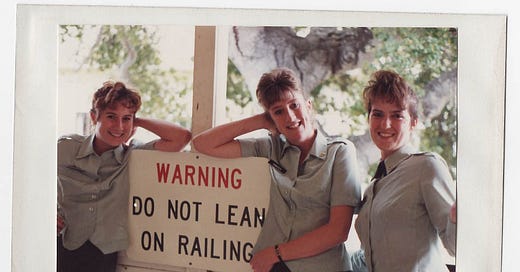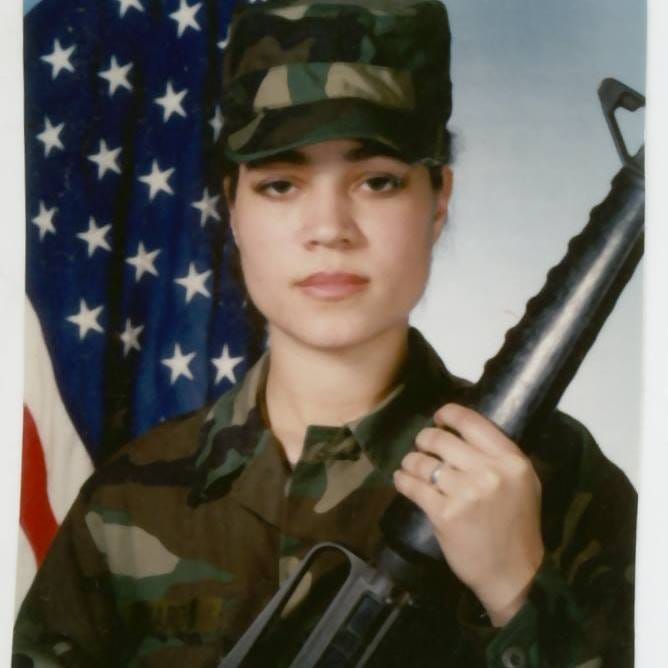Dear Emily:
I’m frankly scared about the election. It’s over and we won, but Trump’s zombies are now preparing a coup. How can this be our country? What should we do? When will this nightmare be over?
Signed,
Worried Voter (#1)
Dear Emily:
Right under our noses, Democrats, aided by the press, are trying to steal this election. The voting irregularities, cheating, dead people voting, and so forth are a threat to our democracy. Are they going to get away with this? I can’t remember being this angry in my entire life.
Signed,
Worried Voter (#2)
Dear Worried Voters,
In a good democracy, we are all winners, even if our first choice doesn’t win a particular election. We are in this together. We came out and voted.
Those of us who voted for Biden should forgive (and ignore) Trumpsters for their outrageous, maddening claims of election fraud. They think, “By refusing to accept it, we call it into doubt.”
And so the best outward response is: “By refusing to hear (or amplify) your unfounded-in-fact refusal, less doubt is stirred up. Trodding a road stirs up dust. I will not step onto your dumb pretend road at all.”
Why are all their slogans shorter?
Those of us who voted for Trump and are worried that some election cheating is going on should look into how the system works. What are the mechanisms? Who counted the votes and who watched? How would someone cheat to the tune of tens of thousands of votes? How have so many Republican legislators been elected over their Democratic rivals while the President lost? Do some homework, not in the comments or on rabble rousing sites, but on the election commission sites, and by reading newspapers who sent reporters to the scene and interviewed officials. Speak to some of your own local election officials and volunteers to find out more about how it works.
Pretty soon election officials WILL certify the votes. Because election officials are real people with real jobs and they exist and they are on a train, a track, a wave of law and practice and tradition. A machine.
On their side, Trumpsters need to forgive us for outnumbering them.
And also for our infuriating attitude of superiority, which is a natural but unfortunate byproduct of actually being superior.
But I sympathize with Trump voters! Many live in towns and cities and states where everyone they know or can see also voted for Trump, and so the idea that there are millions and millions more Biden voters feels fake and improbable to them. We are familiar with the feeling. And it’s true, the news media IS biased, in that reporters and publications do tend to be anti-Trump (because he sucks). And it’s also true that we two camps see the world completely differently, and your perspective IS your reality.
One reality is verifiable and the other isn’t, in this case.
The people who are calling on everyone to TURN DOWN THE TEMPERATURE are offering the very best advice right now, in my opinion. In all ways—online and in person—stick to understatement, calm, quiet, modesty, and a change of subject to food recipes and the winter holidays and animals. Hot arguments are not necessary or productive probably.
It’s Veterans Day
When you arrive at Basic Training, you are ushered into a dressing room where you are given a chance to pull out any prohibited belongings from your luggage and hand them over to the drill sergeants, no questions asked. Weapons, lipstick, gum, food, perfume, comic books, porn, drugs, alcohol, cigarettes—these are not allowed.
I was very sad to turn over my makeup and cigarettes. I remember a fleeting feeling of regret that I hadn’t even thought of comic books.
I palmed one tube of nearly clear lipgloss. I cannot go two months without glossy lips, I admitted to myself. It was going to be hard enough to quit smoking cold turkey. Cigarettes were basically my favorite thing in life. The lipgloss resulted in one of our drill sergeants dubbing me “Private Wet Lips,” which was not ideal. Just let her think my lips are somehow naturally glossy, maybe with slimy evaporation-resistant spit, I prayed in formation, the first time she called me that.
Joining the Army was one of the best decisions I’ve made in my life. I was only on active duty for three years, and it was perhaps foolish of me to turn down an offer to attend the West Point prep school for enlisted soldiers singled out as good officer prospects (because of our high test scores), and during Operation Desert Storm our division wasn’t deployed to Iraq and so I didn’t fight for my country or anything, but I met so many of my fellow 19-year-old Americans—from Guam to Detroit, Wyoming to California, Puerto Rico and New York and Georgia. Together we learned many valuable skills (weapons training and dusting, push-ups and marching, speaking Russian and interrogating POWs, shining boots and ironing) and had adventures and fell in love and talked our faces off, day and night.
That’s what I remember most about the Army—talking at all hours, in foxholes, in the Humvee, in the back of trucks, in tents, outside in the cold, in barracks, in the showers, on bunks, in the hallways, on detail, in the motor pool, in line, in the chow hall. Stories. Everyone had stories to tell. And jokes. And theories.
On Veterans Day I like to remember my beloved Army friends, give thanks for peace, and recognize that most often peace is not achieved through the actions of horny armed teens following orders, but through the actions of peacemakers, trustworthy people being transparent and calm, good systems and norms, high standards, forgiveness and understanding, confidence, trust in each other, and love of life. I mean, really.
You know who should get priority seating on flights? Honest election officials. Really good-looking firemen. And also brave soldiers and sailors and airmen/women who volunteer to do whatever it takes, while hoping that their leaders will give them orders worthy of their trust.
Above, three of my Army friends, (from left: Sandra Roberson from Germany, Valerie Hanson from Sacramento, CA, and a great girl whose name I have forgotten—but she taught me how to best apply mascara and she was hilarious and cool) while we were on break during Russian language school at the Defense Language Institute, standing on the long porch outside our classrooms.
My Granddaddy, a Hero Veteran
I was just now searching for some old photos of some girls I was in the Army with (see above). Instead of finding those photos, I found this, the first letter my hand touched when reaching into the big box of papers and photos and memories:
A letter from Granddaddy
On June 20, 2001, my granddaddy William Sanders sent me a letter about his memory of some of his fellow Marines, from the day he bravely stormed a pill box full of Japanese soldiers and was shot through the neck in the Pacific during World War II.
Here is part of what he sent:
I remember [Private Raymond] Duffee as a little Corpsman who seemed to be everywhere. He had been working out of the same Battalion Headquarters Command Post on Tarawa where I, [Sergeant Clarence] Petrie, and Wohlford worked in getting new supply of demolitions and grenades to reduce the connection of trenches and pill boxes where I got the flag and sword and was later wounded.
Duffee tells me he put my Japanese flag “under my head” as I was put on a stretcher at the beach and loaded on a Higgins Boat en route to a hospital ship and the Naval Hospital at Pearl Harbor. He said I told him I was fighting the war for medals so I could go back home to West Virginia and clean up corrupt politics.Today, Duffee directed my secretary to the Marine webpage and she got Petrie and Duffee’s citations plus related comments off the web.
Both Duffee and Petrie remained on the Island (Betio) of Tarawa until the shooting quit, whereas I was removed the third day. Petrie, thus, was able to look over the trenches and emplacements where we used our demolitions and grenades and was able to inventory what we had accomplished. The whole thing was more like a blur to me, especially since I didn’t dwell on it for more than fifty years later.
Petrie overlooked the fact that Gunnery Sergeant Wohlford, ordinance expert in our headquarters group, was largely responsible for assembling the various assortment of explosives we took to these strong and destructive enemy positions. I also remember Corporal Wells helped our small team by finding a 50 caliber machine gun and ammo on our first visit to the connected trench and pill box area when we got a Sherman Tank commander to drive a few yards toward the pill box, all before our several visits to the pill box connecting trenches with the charges. I don’t remember Petrie going in with me when I made sure the enemy personnel was out of action and got the sword and flag, which Petrie kept in the supply dump that he was in charge of. When he and Wohlford helped me to Dr. Smith’s aid station at the beach in front of our C.P. and while I received two bottles of plasma, Duffee helped Dr. Smith. Petrie retrieved the flag, sword, Bible, and picture from his supply dump and put them on my stretcher.
Granddaddy killed them with a grenade and followed up with his bayonet, and was moments later shot through the neck. He and Petrie are credited with saving the lives of hundreds of men and Granddaddy was awarded the Navy Cross. Here (follow link) is what the local paper published when Granddaddy died.
Although he ran as a Democrat for Congress (on an environmental platform) when I was in my teens, Granddaddy lost that race. I don’t know if he achieved his goal of cleaning up dirty politics. He was able to agitate for desegregation in his town, which resulted in bomb threats and also him being estranged from a portion of the White community, and he had a long and storied career as a trial lawyer representing "mountain folk” as he sometimes called some of his clients, although he was also a mountain folk himself. I guess there are mountain folk and there are mountain folk.
One of Granddaddy’s law partners spoke to a newspaper reporter about him: “He was a patriot on the field of battle overseas and he stood up for what was right when he returned home. He made a principled stance in the 1950s and ‘60s on civil rights, which wasn’t a popular position at the time. He stood up for tolerance and equality for everybody. He prided himself on representing the humble and the poor. He was a strong advocate for people.”
Write to me! I write back.
Up Next
How to have a magical, distanced Christmas with loved ones, the new work uniform, back to kissing, celebrity holiday cards, and are you pampering your feet?




